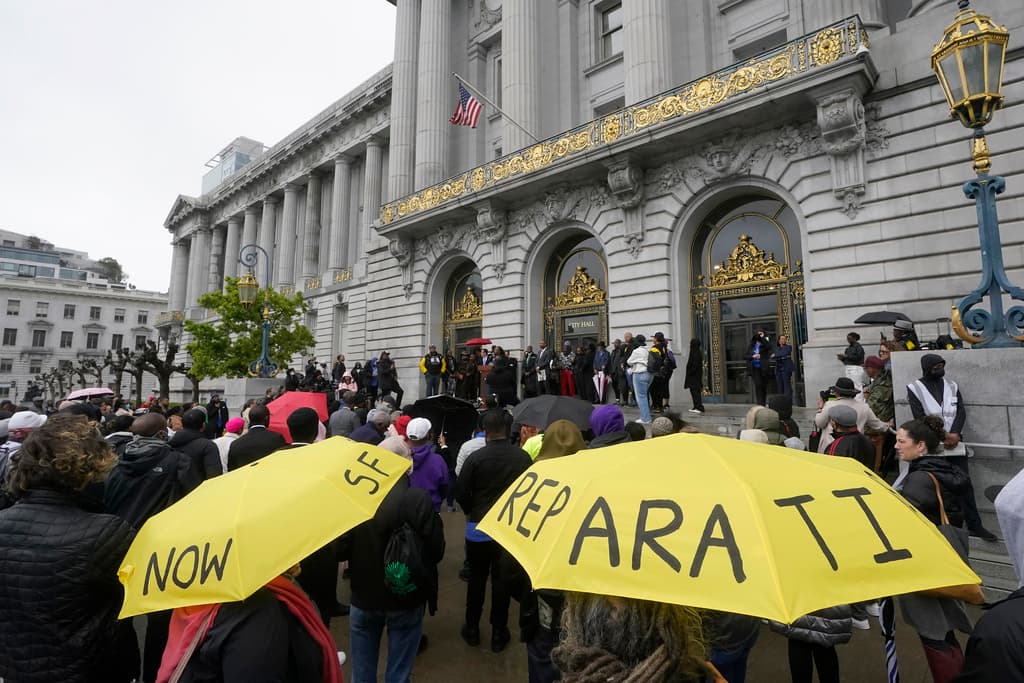San Francisco Reparations Ideas Include $5 Million Payment Per Black Person
A first hearing before the city’s Board of Supervisors on Tuesday could offer a glimpse of the board’s appetite for advancing a reparations plan that would be unmatched nationwide in specificity and breadth.

SAN FRANCISCO — Payments of $5 million to every eligible Black adult, the elimination of personal debt and tax burdens, guaranteed annual incomes of at least $97,000 for 250 years, and homes at San Francisco for just $1 a family. These are just some of the recommendations made by a city-appointed reparations committee tasked with a thorny question: What would it take to atone for the centuries of American slavery and generations of subsequent racism?
Please check your email.
A verification code has been sent to
Didn't get a code? Click to resend.
To continue reading, please select:
Enter your email to read for FREE
Get 1 FREE article
Join the Sun for a PENNY A DAY
$0.01/day for 60 days
Cancel anytime
100% ad free experience
Unlimited article and commenting access
Full annual dues ($120) billed after 60 days
